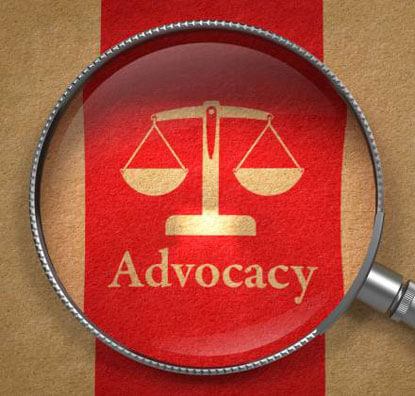
Where do you want your law practice to go? Not many lawyers want their legal careers to simply plod along. As Warren Buffet would put it, “An idiot with a plan can beat a genius without a plan.”
Most attorneys want to grow their businesses—boost revenues, add more clients, take on a new partner, paralegal or assistant.
Setting goals and objectives is a simple concept, but it’s hard to do it right. It is a commitment to achieve a specific outcome.
The idea is to set goals that motivate you to grow and go forward. However, those goals shouldn’t be overly ambitious that they can’t be accomplished. Instead of inspiring you, far-fetched goals can actually set you up for failure.
To maximize your business development time, ask yourself this question: are you being SMART about it?
SMART is a mnemonic device and a great framework for creating goals. The acronym stands for Specific, Measurable, Achievable, Relevant, Time-Sensitive. By using the SMART framework, you are directing time to the most vital areas of your business development activities. SMART gives you focus so you can actually attain your goals.
Let’s review each area of the SMART framework:
Specific
Great goals are focused and well-defined. Being specific about your goal means you are clear on the exact actions you need you to take. Simply saying “I want to grow my firm,” would not do you any good. You need to specify every aspect of your firm you want to grow. To make your goals specific, answer the 5 “W’s”: who, what, when, where, and why. Focusing on a particular goal will give you a clearer picture of how attainable the goal is, and it will help you create a powerful force, called a goal power.
Measurable
A goal without a measurable result is like a sports competition without a scoreboard. Quantifying the goal will help you track your progress. If you don’t follow your goals, how do you know whether you are making progress towards them?
This is where metrics come in handy. Assign key performance indicators to your goal to see if you’re on track. Post a goal whiteboard in your office, and it will remind you daily to keep yourself focused on the targeted outcome you want to achieve.
Achievable
Before you set a specific goal, it’s essential to ask yourself, “Is this goal attainable?” It is important to avoid the two polar extremes: the moon-shot goals that are unrealistic and difficult to achieve, and the low goals that you can reach easily without a challenge. Find a healthy medium—your goal must be within the realm of possibility to be achievable, but not too easy.
See related article: Achieving Legal Goals And Objectives As An Attorney
Relevant
Goals without a heart are brutal sledgehammers. Find a goal that aligns with what you need to do right now, and what is relevant to you and your practice. If the target does not matter, what’s the point of achieving it?
Ask yourself these three questions to decide if a goal is relevant:
- Does this goal align with my other goals?
- Is this goal worthwhile?
- Is now the right time to pursue this goal?
Time-Sensitive
Set a specific deadline for when you want to attain your goals. Saying simply that you want to accomplish “something, someday” will not take you anywhere. Without a deadline, you will have no motivation and urgency to take any action to accomplish it. But if you set a specific deadline, then you are instructing your mind to start working towards the goal. It is vital to set a realistic target date so you can achieve it. Ask yourself is your goal achievable in a week, in a month, in 3 months?
See related article: How to Succeed in the Practice of Law
Here’s an example of the SMART guidelines at work: “Increase the volume of SSDI clients we retain by 7 percent in the second quarter of 2020 through targeted online advertising.” It’s specific in terms of the objective, the percent increase, and the timeframe.
In the beginning, you should go for one or two SMART goals to get started. After that, you can develop as many as you feel are attainable. Make sure to share your SMART goals with all your co-workers, even those who aren’t lawyers. Getting everyone on the same page will help make your goals more achievable. It’s a smart move.
So go ahead and be SMART about your practice.














































